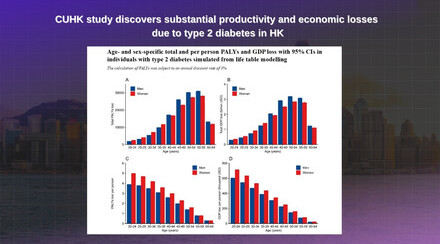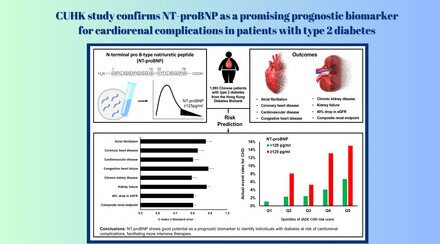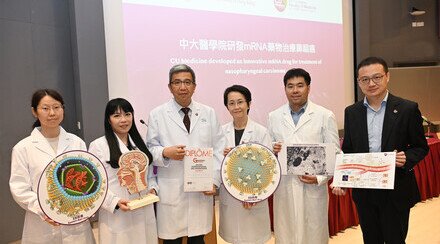New algorithm can predict diabetic kidney disease A simple blood sample could help doctors catch kidney disease earlier in type 2 diabetes patients
Researchers from The Chinese University of Hong Kong (CUHK) and Sanford Burnham Prebys have developed a computational approach to predict whether a person with type 2 diabetes will develop kidney disease, a frequent and dangerous complication of the condition. Their results, published in Nature Communications, could help doctors prevent or better manage kidney disease in people with type 2 diabetes.
Diabetes is the leading cause of kidney failure worldwide. In Asia, about 50% of cases of end stage kidney disease and dialysis are due to diabetes.
The new algorithm depends on measurements of a process called DNA methylation, which occurs when subtle changes accumulate in our DNA. DNA methylation can encode important information about which genes are being turned on and off, and it can be easily measured through blood tests.
“Our computational model can use methylation markers from a blood sample to predict both current kidney function and how the kidneys will function years in the future, which means it could be easily implemented alongside current methods for evaluating a patient’s risk of kidney disease,” said Professor Yip.
The researchers developed their model using detailed data from more than 1,200 patients with type 2 diabetes in the Hong Kong Diabetes Register. They also tested their model on a separate group of 326 native Americans with type 2 diabetes, which helped ensure that their approach could predict kidney disease in different populations.

Professor Juliana Chan (left) and Dr Kelly Li
“This study highlights the unique strength of the Hong Kong Diabetes Register and its huge potential to fuel further discoveries that improve our understanding of diabetes and its complications,” said study co-author Professor Juliana Chan, Chair Professor of Medicine and Therapeutics at CU Medicine, who established the Hong Kong Diabetes Register more than two decades ago.
“The Hong Kong Diabetes Register is a scientific treasure,” added first author Dr Kelly Li Yichen, a postdoctoral scientist at Sanford Burnham Prebys. “It follows up with patients for many years, giving us a full picture of how human health can change over decades in people with diabetes.”
The researchers are currently working to further refine their model. They are also expanding the application of their approach to incorporate other data that can further enhance their ability to predict other diabetes-related outcomes.
“Our collaboration with experts in clinical diabetes, computational science and bioinformatics started in Hong Kong,” added Professor Ma. “We are delighted that the findings of this study could improve future care and make it easier to determine who will benefit most from these new treatments to prevent kidney damage from diabetes. The science is still evolving, but we are working on incorporating additional information into our model to further empower precision diabetes medicine.”
The study was supported by grants from The Hong Kong Research Grants Council Theme-based Research Scheme and Research Impact Fund, with additional support from the Research Grants Council, National Institutes of Health, the Croucher Foundation and CUHK. The project team have already filed a patent related to their invention.
The study’s DOI is 10.1038/s41467-023-37837-7
About the Faculty of Medicine, The Chinese University of Hong Kong (CU Medicine)
CU Medicine was set up to meet the needs of society by providing graduates with the professional development and knowledge that equips them to be caring and competent medical practitioners. A young medical school, established in 1981, the Faculty ranked in the top 3 in Asia and 32nd globally in the QS World University Rankings by Subject 2023.
We have a team of over 1,200 full-time teaching and research staff from 19 departments and schools, covering the entire range of research and clinical disciplines. We encourage collaborative working between scientists and clinicians across disciplines and specialties, and remain at the forefront of the translational medicine revolution. Our Faculty members excel in tackling challenging health problems, making a lasting impact on patients’ lives and the wider society.
CU Medicine has won an internationally renowned research reputation for its encouraging environment for the effective pursuit of world-class research and important contributions from team members.
More information about CU Medicine is available at www.med.cuhk.edu.hk
About Sanford Burnham Prebys
Sanford Burnham Prebys is an independent biomedical research institute dedicated to understanding human biology and disease, and advancing scientific discoveries to profoundly impact human health. For more than 45 years, its research has produced breakthroughs in cancer, neuroscience, immunology and children’s diseases, and is anchored by its NCI-designated Cancer Center and advanced drug discovery capabilities.
For more information, visit sbpdiscovery.org.













































